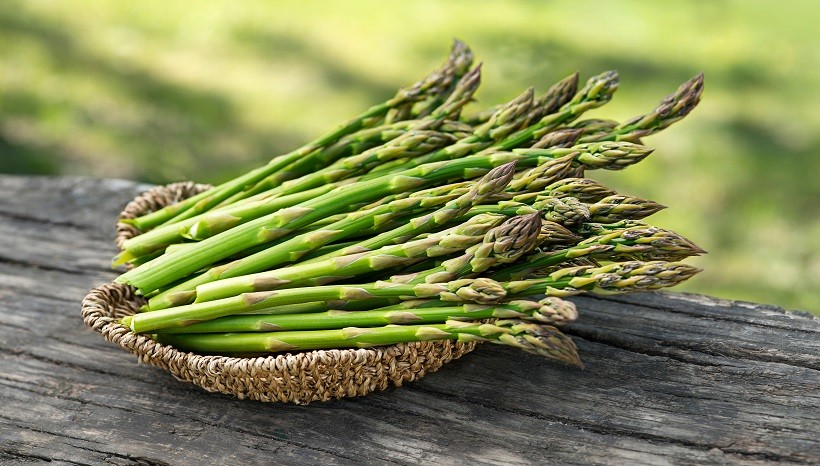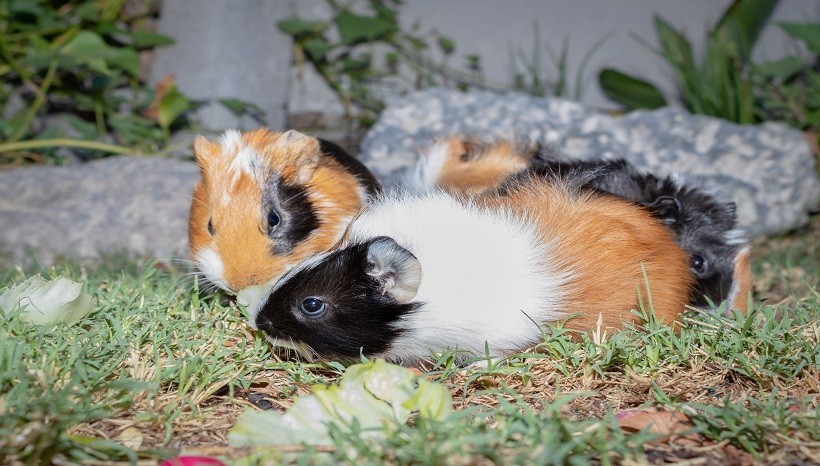Yes, guinea pigs can eat asparagus as a treat. It is excellent in terms of nutritional content because it contains important nutrients such as vitamin C, and other vital minerals. To keep their teeth healthy, guinea pigs enjoy nibbling on these stems. In rare instances, asparagus should only be served as a special treat. Oxalic acid is found in asparagus and is hard to ingest. There is a great possibility of acquiring a painful bladder after having asparagus in bulk amounts.
What Is Asparagus?
Asparagus is a nutrient-rich and delicious vegetable that may become a staple in the diet. Asparagus plants can live for more than a year on this herbaceous perennial. In the spring, asparagus, a green vegetable with long spears, is a welcome sight. When it comes to asparagus, it’s usually grilled or broiled. Some people can get gastrointestinal discomfort and flatulence after eating asparagus.
Nutritional Facts Of Asparagus

Several vitamins in asparagus can benefit heart and bone health. Folate (Vitamin B-9) and iron content are most beneficial during pregnancy. Asparagus is abundant in vitamin K, which prevents blood clotting and improves bone growth in the skeletal system. It is also highly rich in potassium, fiber, thiamin, vitamins A, B6, and C, in addition to folic acid.
Do Guinea Pigs Like Asparagus?
The harder sections of asparagus are very popular with the guinea pigs, as they like chewing. Due to its abundance of nutrients and water, asparagus might be an excellent guinea pig treat on the weekend. There is a lot of vitamin A in asparagus that can help with vision. The poor eyesight of Guinea pigs can be prevented by supplementing with vitamin A. Asparagus may not appeal to the guinea pig because they are different from each other.
Can Baby Guinea Pigs Eat Asparagus?
Sadly, baby guinea pigs are unable to consume asparagus. These animals require a particular diet, which contains mother’s milk, fresh hay, and water, among other ingredients. They should be fed new foods slowly, and you must stop feeding them the meal if you observe any allergic symptoms (diarrhea, vomiting, or bloating).
Can Guinea Pigs Have Asparagus Safely?
Oxalate and phosphorus are present in this vegetable in high amounts. Vitamin C is also present. Once in a while, you can feed your Guinea Pig on asparagus. Despite the fact that it includes vitamin C, it can cause your Guinea Pig to gas and bloat.
Can Guinea Pigs Eat Canned Asparagus?
Asparagus in a can is not suitable for guinea pigs. If you offer them canned asparagus, be aware that it could contain harmful poisons. Preservatives and salt used to preserve asparagus can be bad for consumers’ health. Ensure that they are only feeding on raw asparagus and its parts.
Can Guinea Pigs Eat Asparagus Stalks?
Asparagus stems and stalks are safe for guinea pigs. Chewing is a favorite pastime for them and is beneficial for their teeth and gums. They need to constantly chew to keep up with the rapid growth of their teeth. It’s vital to remember that asparagus is a vegetable that should be consumed in moderation and sparingly. All parts of the asparagus, on the other hand, contain oxalic acid, which may cause discomfort in the bladder. Only give your guinea pig a couple of slices once a week.
Can Guinea Pigs Eat Asparagus Fruit?
False. Guinea pigs are unable to eat asparagus fruits due to their small size. As a result of their high toxicity, these fruits can induce diarrhea and vomiting. It is suggested by the experts to avoid feeding your pet on such berries.
Can Guinea Pigs Eat Asparagus Ends?

Yes, you can feed asparagus ends to the guinea pigs, and they are an important part of its food. Consuming asparagus ends is completely harmless for Guinea pigs. The guinea pigs munch on the ends because they have a fibrous texture.
Can Guinea Pigs Eat Raw Asparagus?
Yes, guinea pigs can only eat raw fruits and vegetables. In the wild, a cavy didn’t have access to cooked foods, therefore a domesticated guinea pig should Even though be fed on raw asparagus only. It is not recommended to force the pigs to eat only one type of fruit or vegetable for the entire day.
The raw consumption of other items such as potatoes and sweet potatoes is prohibited, although they can be consumed because guinea pigs can be finicky eaters, just like people.
Can Guinea Pigs Eat Cooked Asparagus?
No, you should not feed cooked asparagus to guinea pigs. Oil and onions are needed to cook asparagus. These ingredients are poisonous to guinea pigs. In addition, overcooked asparagus depletes the guineas of nutrients and makes digestion harder, resulting in gas and bloating, as well as other gastrointestinal discomforts, such as anorexia.
Health Benefits Of Asparagus
Asparagus is high in antioxidants and a good source of vitamin E and C. Often intake of this vegetable improves their eyesight. Moreover, asparagus is a good source of vitamins and minerals. In addition to strengthening their immune systems, guinea pigs who eat this plant get stronger with time. High potassium content in asparagus is beneficial to your pet’s heart health.
Large water content keeps them hydrated. It helps individuals to lose weight and it also restricts the number of calories they eat. Healthy digestion and gut microbes are maintained by fiber. High-fiber foods need more chewing, which wears down your pig’s teeth.
Side Effects Of Eating Asparagus
Asparagus contains trace levels of oxalic acid. If guinea pigs consumed it in excessive amounts, this may result in bladder or kidney stones. If fed in large quantities then this leads to diarrhea and bloatedness in the guinea pig’s stomachs.
Abundant consumption also leads to major urinary issues. The horrible allergic reaction that can occur when they consume asparagus for the first time is no longer a problem; instead, some of the most common symptoms of the condition include nausea, vomiting, diarrhea, and sneezing.
Can Asparagus Cause Diarrhea?
The most common symptom of an imbalanced diet is diarrhea. In addition to diarrhea and stomach distention, your Guinea pigs may also develop gas if you overfeed them on asparagus. Give them a cup of leafy greens at a time and introduce each new veggie slowly.
An uneven diet might lead to diarrhea, which is one of the most common issues in their digestive system. It’s also worth noticing that asparagus has a small amount of sugar, which might be hazardous to their digestion.
Conclusion
Asparagus is one of the favorite snacks of guinea pigs. It can be enjoyed and served as a healthy, beneficial, and nutritious diet. All parts of the asparagus are chewy, which helps a baby’s teeth wear down. When served in moderation, asparagus can be beneficial to guinea pigs.
We must properly wash the asparagus before feeding to avoid exposing them to pesticides or other infections. Cooked, frozen, roasted, or processed asparagus should never be served to guinea pigs; this may develop diarrhea as a result.